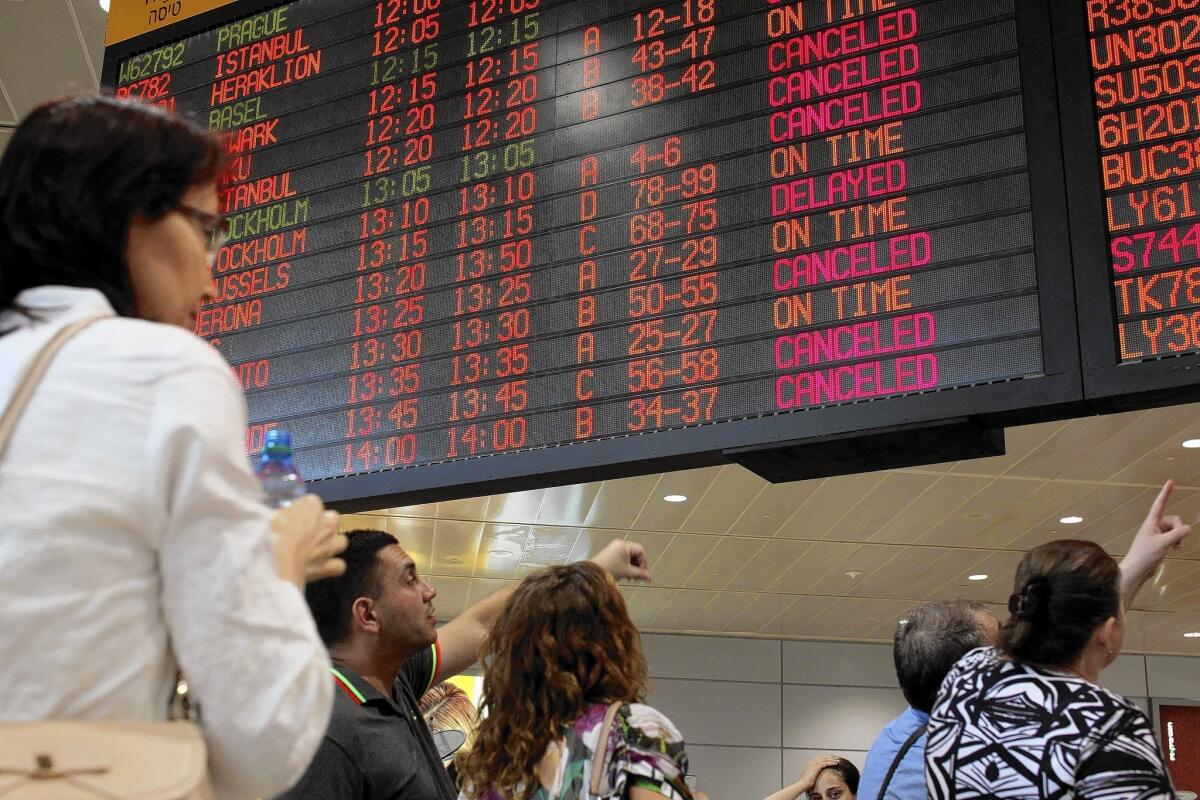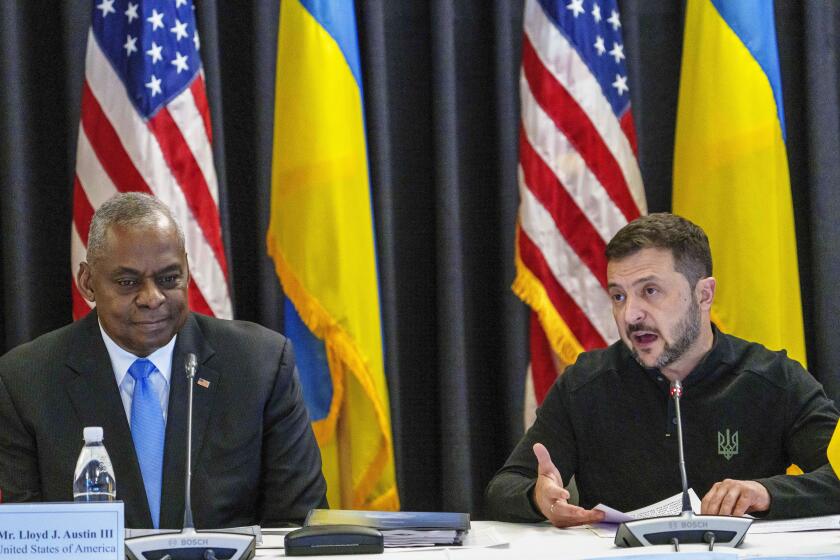FAA caution on Israel flights reflects concern after Ukraine incident

Reporting from Washington — The Federal Aviation Administration’s temporary ban on U.S. flights to Israel, which was renewed Wednesday, reflects a new and possibly permanent regulatory cautiousness in the aftermath of last week’s downing of a commercial airliner over Ukraine, aviation experts said.
“The Ukraine incident is a game changer in many, many ways,” said Billie H. Vincent, former head of the FAA’s Office of Civil Aviation Security. “There will be a great deal more caution in flying over areas with political and military insecurity.”
He predicted that the aviation industry’s approach to security would be permanently separated into periods “before and after the Ukraine shoot-down.”
Although aviation security has historically focused on internal threats to airports or airplanes such as bombs or hijackers, recent turmoil around the world has heightened concern about external threats.
Those threats include unsophisticated rockets, such as those fired from the Gaza Strip, as well as the Russian-made SA-11 missile believed to have brought down Malaysia Airlines Flight 17, killing 298 people.
“The FAA’s extension [of the Israel ban] is very prudent in light of recent circumstances,” said William Waldock, professor of safety science at Embry-Riddle Aeronautical University. “MH-17 woke up a lot of people.... I think eventually we’re going to have to take a look at any conflict zone.”
Robert Ditchey, an aviation consultant and cofounder of America West Airlines, said airlines may now come under pressure from their insurance companies to stay clear of war zones or face the possibility that premiums will sharply increase.
The FAA has restrictions or warnings on flights to Afghanistan, Democratic Republic of Congo, Cuba, Egypt, Ethiopia, Iran, Iraq, Kenya, North and South Korea, Libya, Mali, Somalia, Syria, Ukraine and Yemen.
The FAA ban on flights to Tel Aviv was imposed Tuesday after a rocket fired from Gaza struck a home about a mile from Ben Gurion International Airport, apparently circumventing Israel’s Iron Dome missile-defense system.
The decision resulted in an avalanche of criticism from Israel, where tourism from the United States is a key driver of the economy, especially in the summer. A cutoff of flights to the U.S. is also an important psychological setback in a country that feels isolated in a hostile Middle East.
But even as the U.S. regulatory agency on Wednesday renewed the ban for “up to an additional 24 hours,” there were indications that the restrictions might soon be lifted. FAA officials said in a statement that they were reviewing “significant new information” provided by the Israeli government to address FAA concerns and highlight security measures around the airport.
Israeli newspapers said that tens of thousands of Israelis were stranded overseas and thousands of tourists unable to leave Israel as planned. Most major European airlines also canceled their flights, though Israel’s national airline, El Al, and some international carriers continued to fly.
Israeli Prime Minister Benjamin Netanyahu asked Secretary of State John F. Kerry on Tuesday night for a lifting of the flight ban. Kerry at least gave Israel a psychological boost Wednesday, flying in his government jet into Ben Gurion Airport from Egypt. So did former New York Mayor Michael R. Bloomberg, on El Al.
“You can fly in and out of Israel,” Netanyahu told Bloomberg after his arrival. “We protect this airport. There’s no reason whatsoever for the mistaken FAA decision to instruct American planes not to come here. I think you’re proving it by coming here.”
Times staff writer Hugo Martin in Los Angeles contributed to this report.
More to Read
Sign up for Essential California
The most important California stories and recommendations in your inbox every morning.
You may occasionally receive promotional content from the Los Angeles Times.











